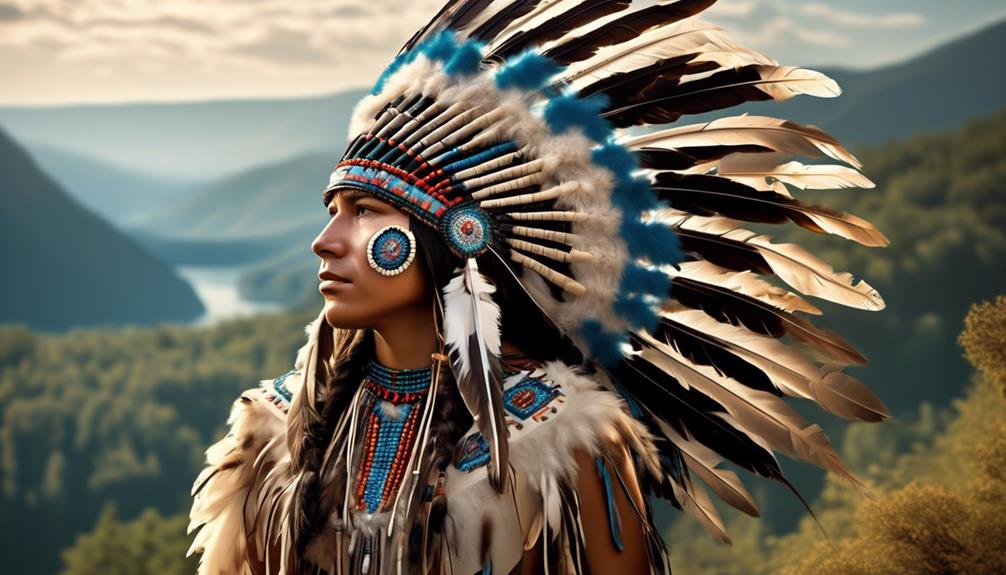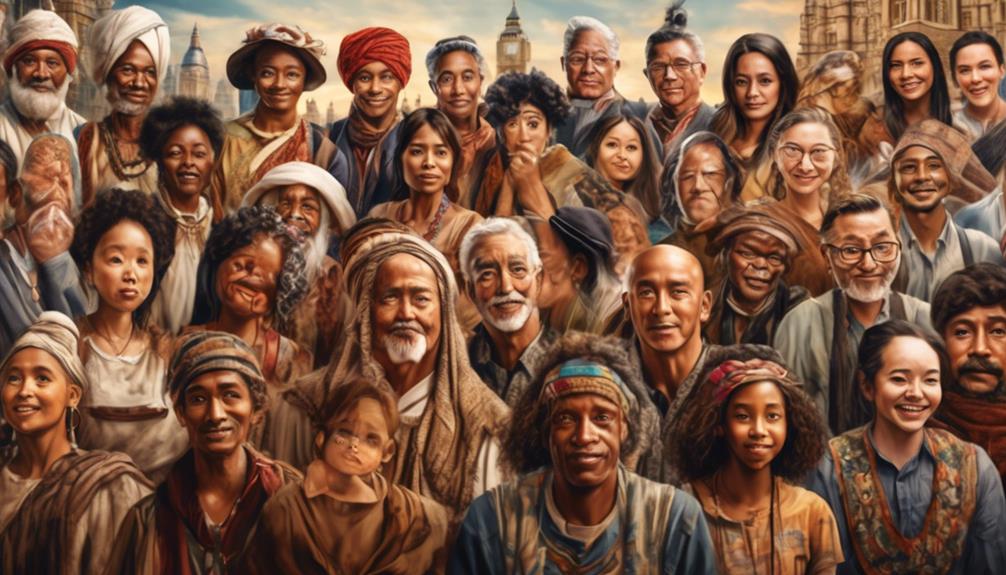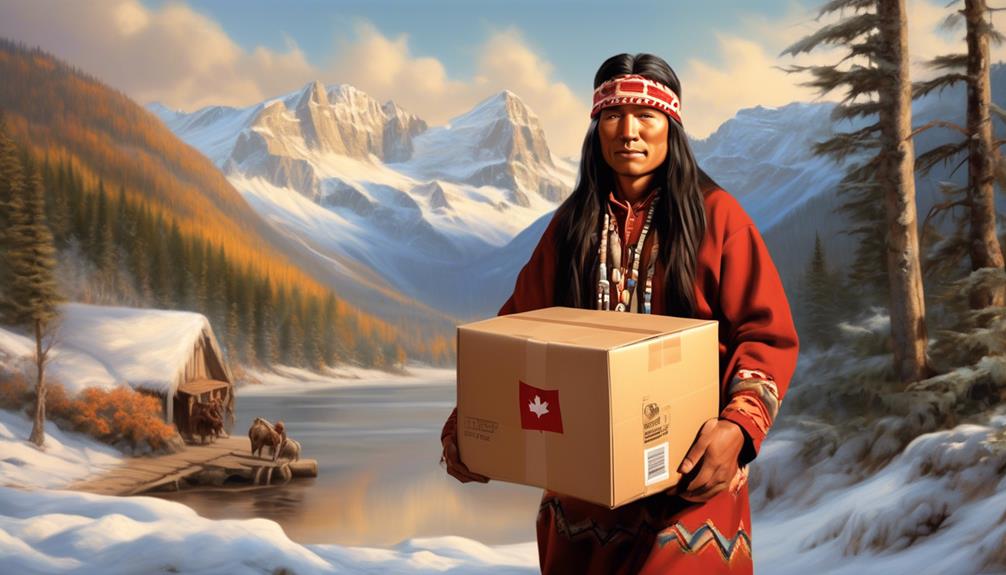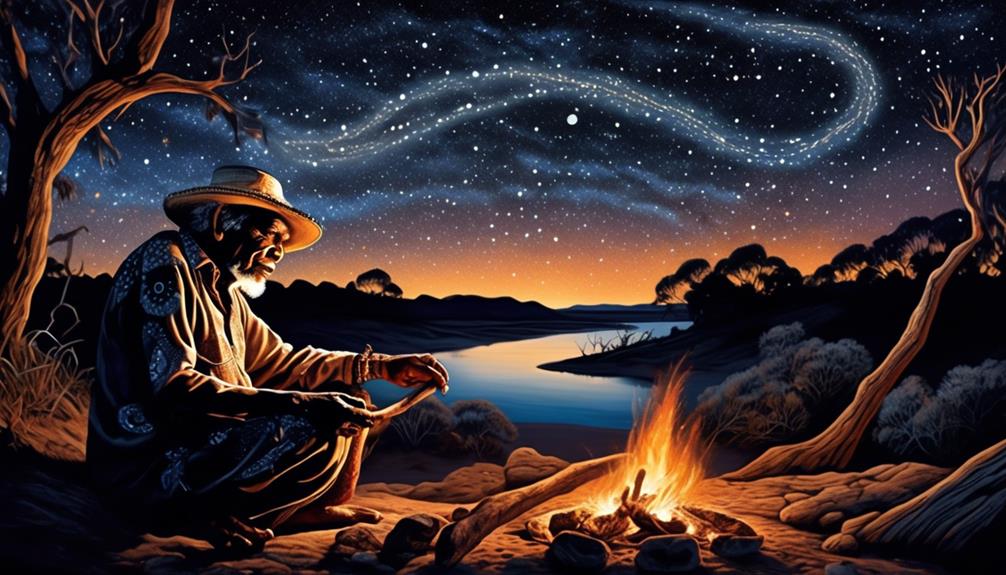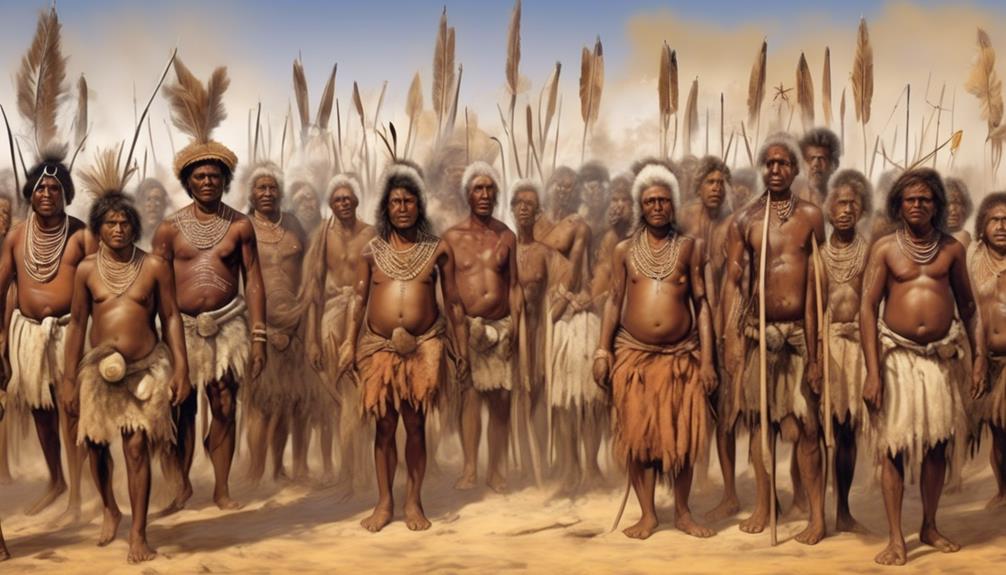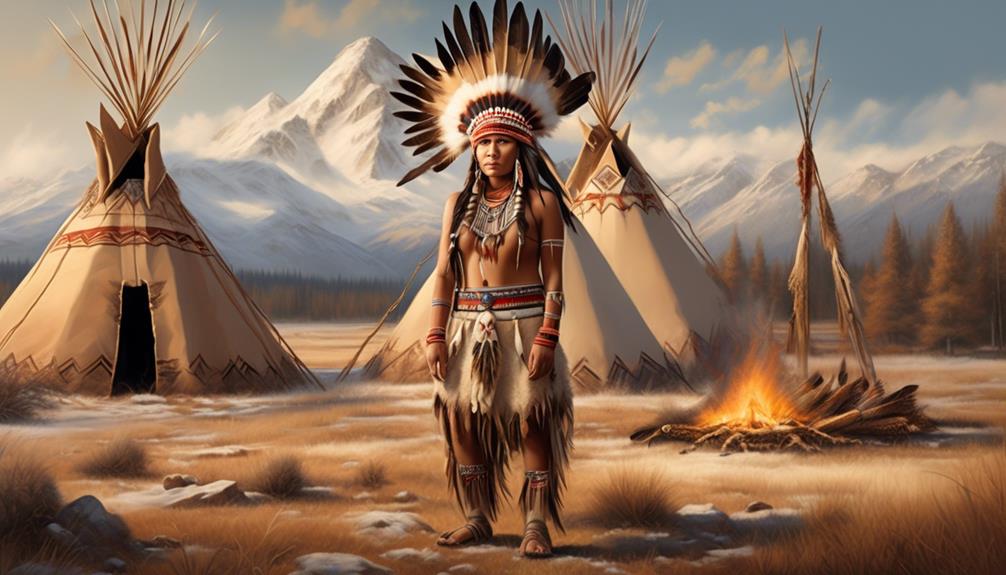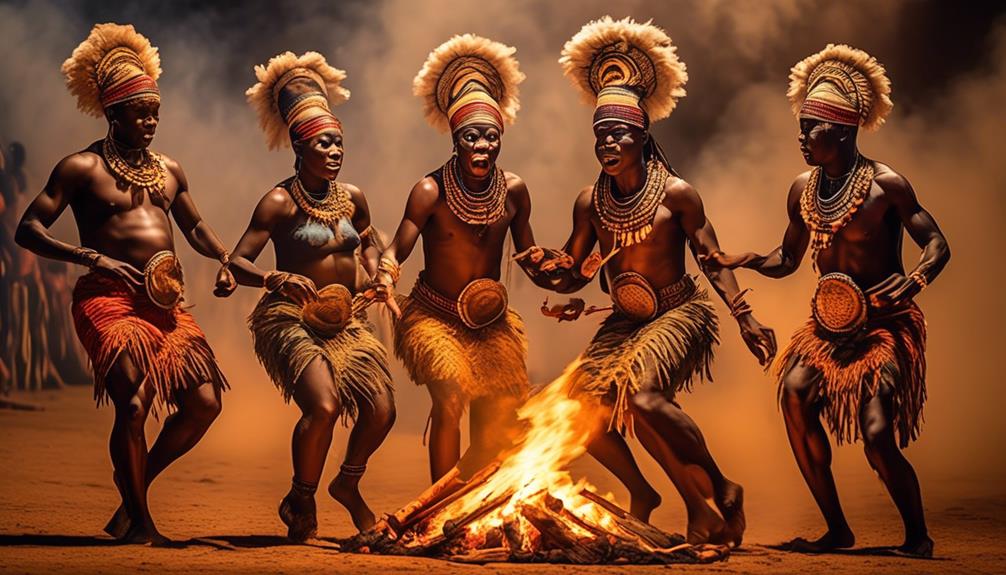As we explore the intricate world of Native American culture, we are struck by the enchanting allure of their names. Each name, like a thread in a intricately woven tapestry, holds a story waiting to be shared.
But what is the significance of these names in Native American culture? How are they chosen, and what factors influence their selection?
Join us as we explore the traditions, customs, and deep-rooted beliefs that shape the names of the indigenous peoples of North America.
Key Takeaways
- Native American names hold personal and cultural significance, reflecting identity and spirituality.
- Traditional naming practices have been disrupted by colonization but are being revived and preserved.
- Nature, family lineage, and significant life events influence the selection of Native American names.
- Passing down ancestral names upholds customs, reinforces familial lineage, and transmits cultural values.
The Significance of Native American Names
The significance of Native American names lies in their deep connection to the natural world and their ability to convey personal and cultural identity. Names aren't merely labels, but they carry spiritual and cultural significance, reflecting the individual's place within their community and the natural environment.
Each name is carefully chosen to encapsulate the essence of a person, reflecting their cultural identity and spiritual connection to the world around them.
In Native American cultures, names are often given based on significant events, personal attributes, or connections to the natural world. These names serve as a constant reminder of the individual's place within their community and their spiritual connection to the land, animals, and elements. They embody the values, traditions, and beliefs of their people, representing a deep-rooted connection to the cultural identity and heritage of the individual.
Naming Traditions in Native American Culture

Naming traditions in Native American culture reflect the deep spiritual and cultural significance of names, shaping individuals' identities within their communities and their connections to the natural world. These traditions have been passed down through generations, serving as a vital aspect of cultural preservation.
- Cultural Preservation: Native American naming ceremonies are steeped in tradition and are considered sacred. These ceremonies often involve elders and community members, emphasizing the communal nature of the naming process.
- Impact of Colonization: The arrival of European colonizers had a profound impact on Native American naming traditions. Many indigenous names were anglicized or replaced with European names, disrupting traditional naming practices and leading to the loss of cultural identity.
- Modern Influences: In contemporary times, Native American naming traditions are influenced by modern factors such as urbanization, globalization, and intercultural marriages. This has led to a blend of traditional and modern naming practices, reflecting the evolving nature of Native American culture.
- Revival and Resurgence: Despite the challenges posed by colonization, there's a growing movement to revive and preserve traditional naming practices. Efforts to reclaim indigenous languages and naming customs are contributing to the resurgence of authentic Native American names, strengthening cultural identities and connections to ancestral heritage.
Factors Influencing Native American Name Selection
Influences from nature, family lineage, and significant life events play a pivotal role in shaping Native American name selection.
The naming process among Native American communities is deeply rooted in cultural identity and personal meaning. Nature has a profound impact on name selection as it reflects the connection between individuals and the natural world. For instance, names like Running Bear or Little Deer are inspired by animals and their characteristics, signifying a deep reverence for nature.
Family lineage also heavily influences name selection, with names often being passed down through generations, preserving ancestral connections and honoring the legacy of elders.
Moreover, significant life events such as acts of bravery, resilience, or spiritual visions are commemorated through names, embodying personal triumphs and resilience.
Each name carries a profound significance, reflecting the individual's cultural heritage and personal journey. Understanding these influences provides insight into the rich tapestry of Native American naming traditions, where names are intricately woven with cultural values and personal narratives.
Passing Down Ancestral Names in Native American Tribes
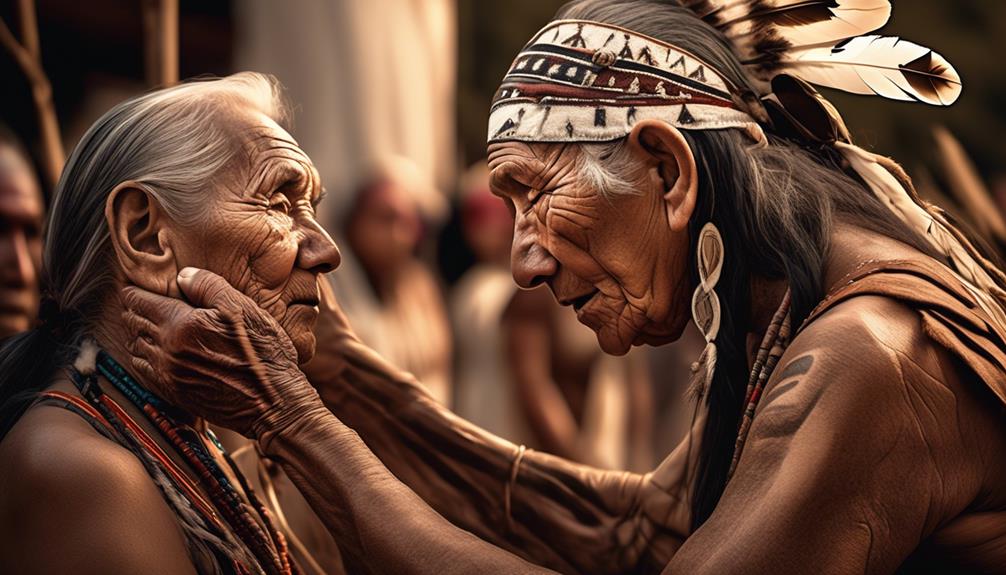
Passing down ancestral names in Native American tribes reflects a deep commitment to preserving cultural heritage and honoring the lineage of elders, embodying a profound connection to familial roots and traditions. This practice is steeped in centuries of tradition and holds immense significance for our communities. Here's how the passing down of ancestral names in Native American tribes continues to shape our culture:
- Cultural Preservation and Generational Heritage: By passing down ancestral names, we uphold the customs and beliefs of our ancestors. It serves as a tangible link to our past, ensuring that our heritage remains alive and vibrant in our modern lives.
- Respect for Elders and Ancestral Lineage: The act of passing down ancestral names signifies deep respect for our elders and the wisdom they impart. It also reinforces the importance of familial lineage and the connections between generations.
- Modern Influences and Evolving Traditions: While the practice of passing down ancestral names remains rooted in tradition, it also adapts to modern times. This flexibility allows us to honor our heritage while embracing the changes and influences of contemporary society.
- Transmitting Cultural Values: Ancestral names carry the values and virtues of our forebears, serving as a means of transmitting these essential aspects of our culture to future generations. This ensures that our identity and traditions endure through time.
Understanding the Stories Behind Native American Names
Delving into the significance of Native American names reveals rich narratives that encapsulate the essence of individuals, communities, and cultural traditions. Cultural representation is deeply woven into Native American names. Each name carries a story, often reflecting the individual's role within the community or the values upheld by their tribe. These names aren't merely labels but are imbued with the wisdom and heritage of generations. They serve as vessels of storytelling, passing down traditions and histories through the generations.
Understanding the stories behind Native American names allows for a deeper appreciation of the cultural richness and diversity within indigenous communities.
In modern times, there have been adaptations of Native American names to fit contemporary contexts, yet efforts are made to ensure that these adaptations maintain the cultural representation and storytelling inherent in the original names. This is crucial for cultural preservation, as it allows traditions to remain alive and relevant in today's world.
Frequently Asked Questions
How Do Native American Names Differ From Traditional Western Names in Terms of Structure and Meaning?
In terms of structure and meaning, Native American names differ from traditional western names due to cultural naming practices. They often reflect significant aspects of nature, life events, or personal characteristics, emphasizing a deep connection to the natural world.
This contrasts with the more conventional structure and meaning of traditional western names, which are often derived from family lineage or historical figures.
Are There Specific Naming Ceremonies or Rituals That Are Commonly Practiced in Native American Culture?
Naming traditions in Native American culture hold deep cultural significance. Ritual practices vary among tribes, but often involve elders bestowing names upon individuals as part of a generational impact. These ceremonies are integral to preserving tribal identity and honoring ancestors.
The names themselves often reflect nature, animals, or virtues, connecting individuals to their heritage and the natural world. These traditions continue to be integral to Native American cultural identity.
What Are Some Common Misconceptions or Stereotypes About Native American Names That Should Be Addressed?
Common misconceptions about Native American names should be addressed to better understand the challenges faced.
Appropriation of names without understanding their cultural significance perpetuates stereotypes.
It's essential to recognize the importance of names in Native American culture and the impact of misrepresentation.
Understanding the complexities of naming practices can lead to greater respect and appreciation for the rich traditions and heritage of indigenous communities.
How Do Modern Native American Families Navigate the Balance Between Preserving Ancestral Names and Choosing Names That Reflect Their Contemporary Identity?
Preserving our heritage is vital as we navigate the balance between ancestral tradition and contemporary identity in naming customs.
It's a meaningful process, where we honor our roots while reflecting our present reality.
We carefully consider the significance of ancestral names and how they align with our modern lives.
Our naming choices encapsulate our rich history and the pride we've in our cultural legacy, blending the old with the new.
What Role Do Elders or Community Leaders Play in the Naming Process Within Native American Tribes?
Elders and community leaders hold a significant role in the naming process within Native American tribes. Their wisdom and cultural knowledge guide the selection of names, ensuring they carry the proper meaning and significance.
This process fosters a deep connection to our heritage and traditions. It's a beautiful way to preserve our cultural identity and pass down our rich traditions to the next generation.
Conclusion
So, as we've learned about the significance of Native American names, it's clear that they hold deep cultural and spiritual meaning. It's ironic that in a world where names are often taken for granted, these names carry such weight and history.
From naming traditions to the stories behind each name, it's a reminder to cherish and honor the names we're given, and the stories they hold.
Mary is a passionate writer who brings creativity and a fresh perspective to our team. Her words have the power to captivate and inspire, making her an essential contributor to our content. Mary’s commitment to storytelling and dedication to promoting Indigenous culture ensures that her work touches the hearts of our readers. We’re fortunate to have her as part of our team.
